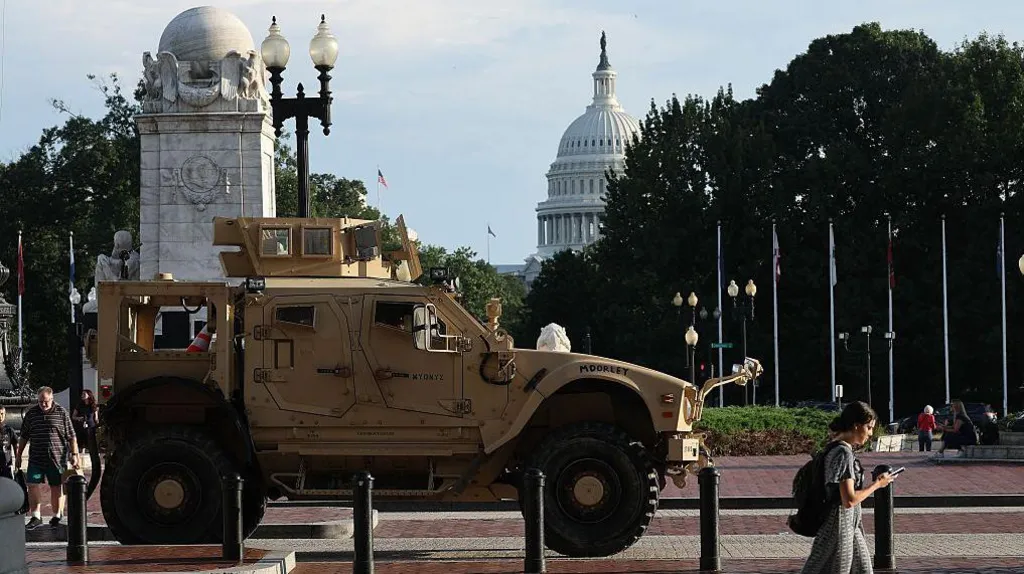In response to President Donald Trump’s deployment of approximately 800 troops in Washington, DC, three Republican-led states have committed to sending additional National Guard forces to the nation’s capital. West Virginia Governor Patrick Morrisey announced the deployment of 300-400 National Guard troops at the President’s request, while South Carolina and Ohio will dispatch 200 and 150 troops respectively, including military police personnel.
President Trump’s declaration of a “public safety emergency” on Monday cited the prevalence of what he described as “complete and total lawlessness” in Washington, DC. Contrary to these claims, the elected officials of Washington, DC have vehemently objected, with hundreds of residents taking to the streets in protest over the weekend.
This deployment of National Guard troops has seen them patrolling alongside federal law enforcement agents in Washington’s densely populated and tourist-frequented areas. However, the heightened security measures have elicited mixed reactions among the residents. Notably, a significant portion of Washington, DC’s population, who overwhelmingly voted for Vice President Kamala Harris in the 2024 election, have voiced frustration with the enforcement strategies employed by the Trump administration.
The sentiments of Washington, DC residents have manifested in various forms, including filming federal officers during patrols and organizing peaceful protests against the administration. Over the weekend, protesters gathered in Dupont Circle, a central focal point of the city, chanting slogans of “Free DC!” as they marched through the streets, percussion instruments in tow.
Concurrently, concerns over crime in Washington, DC have surfaced, notably underscored by an incident where a former employee of the Trump administration’s Department of Government Efficiency (Doge) was assaulted in the city. President Trump’s portrayal of the nation’s capital as besieged by “violent gangs and bloodthirsty criminals” has clashed with the assertions made by Mayor Muriel Bowser, who has refuted claims of widespread crime.
Data from the Metropolitan Police Department (MPD) reveals a contrasting narrative, indicating a 32% decrease in homicides between 2023 and 2024, marking the lowest level since 2019. Preliminary figures for 2025 also show a reduction in overall violent crime by 26% compared to the same period in the previous year. The decline in robbery incidents, down by 28%, has been reported by BBC Verify, supporting the trend of diminishing crime rates in the city.
The Trump administration’s attempt to assume control of the District of Columbia’s Metropolitan Police Department under the District of Columbia Home Rule Act was met with legal opposition from city officials, eventually leading to the withdrawal of the directive. Despite this, Judge Ana Reyes stipulated that Mayor Bowser must adhere to White House directives, further entangling the debate on governance and public safety in Washington, DC.
In conclusion, the deployment of additional National Guard troops in Washington, DC has spurred debates on public safety, contrasting perceptions of crime levels, and heightened tensions between local and federal authorities. As the city navigates through these unfolding events, the dialogue on law enforcement practices and governance responsibilities remains at the forefront of the public discourse in the nation’s capital.

